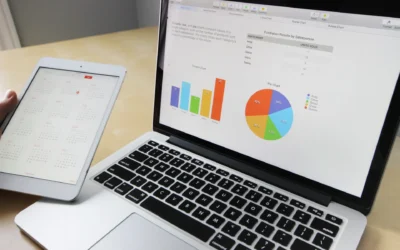Real estate has seen quite a significant change in the past two years. Much of this concerns the rapid technological advantages we’re currently undergoing and how the pandemic transformed things all around.
Real estate is one of those markets that doesn’t shy away from uncertainty. There are consistent efforts to make real estate much more profitable to businesses and people alike.
Real estate has been a market and economic tool for quite a while. It’s worth knowing its role in the future.
The Current Real Estate Industry
Real estate trends permeate throughout society. Real estate prices have only been increasing, but their role in society is an avenue for different parts of human life.
Real estate and infrastructure are necessary for health, commerce, entertainment, and education. With technological advancements, we see that real estate is becoming more and more accessible for new investors.
However, there are other trends, such as the carbon emissions by the real estate industry. Most houses or buildings made have a lot of net carbon emissions. The response to these emissions has been smart buildings using clean energy.
However, this project is still at its beginning in the developed world. The greatest challenge has been converting buildings that already exist worldwide to net zero emissions buildings by 2050 with real industry trends.
Wellness
After the pandemic, one major realization we saw in people was that health was equivalent for everyone. In the following years, health will continue to be a significant concern, with mental health adding another level of importance for organizations.
Offices that are safe, secure, and green (filtered air, clean energy) are even greater priorities. Real estate owners must incorporate this need by the masses to have spaces that incorporate nature and overall well-being, as this remains a major priority moving forward.
Virtual Space
The introduction of the metaverse has led to many talks on virtual space and how that can impact the real estate industry. Investors will be thrilled to learn that virtual reality software will be used for property viewing and may assist renovators in planning their projects.
For instance, several apps may enable investors to observe staged rooms and renovations from their mobile phones. Property developers looking to make raw land purchases may benefit from virtual reality in real estate in the future. Property developers should prepare for virtual reality applications that let users experience finished properties before construction even begins.
Repurposing of Properties
We have seen in the pandemic that office spaces are no longer as useful for many as the work-from-home trend continues to grow. Office spaces aren’t the only places that can be repurposed. Numerous assets, particularly those in the commercial sector (office, retail, and hospitality), would need to be repurposed.
The fundamentals of demand for these assets have shifted as a result of the global pandemic. As a result, we anticipate a rising trend in future years. Real estate owners are waiting things out before they jump on the trend.
However, they will soon understand that some of these changes are long-term. Alterations for the accommodation of market demands would soon become necessary.
Final Thoughts
Like any other industry, the real estate market must also undergo several changes in the face of the transforming demands of customers. The industry is likely to transition vastly due to the influence of technology in the real estate market. Climate change demands wellness, and the increase of virtual space in the world drives the future real estate industry.




